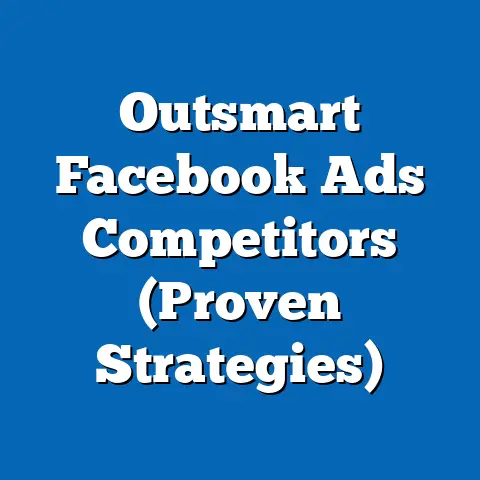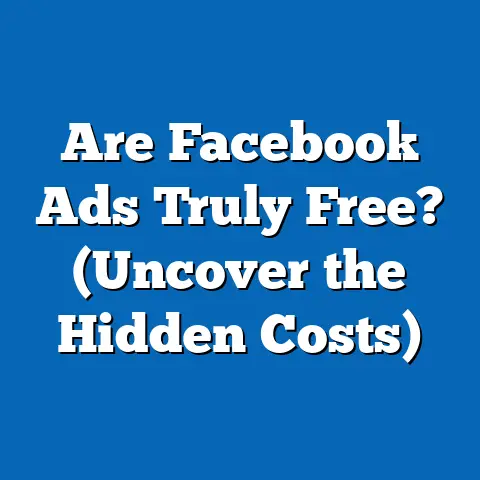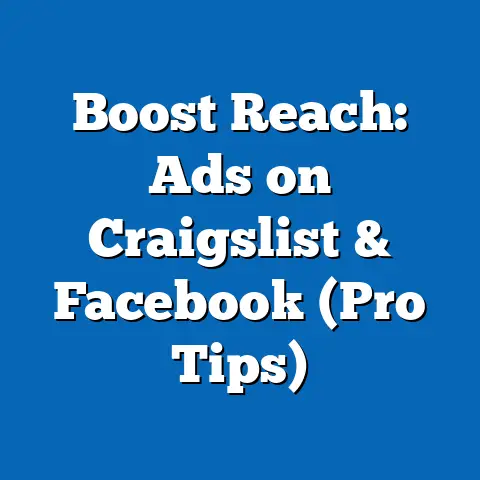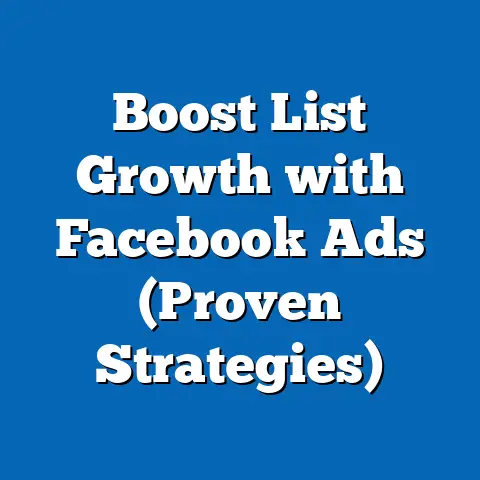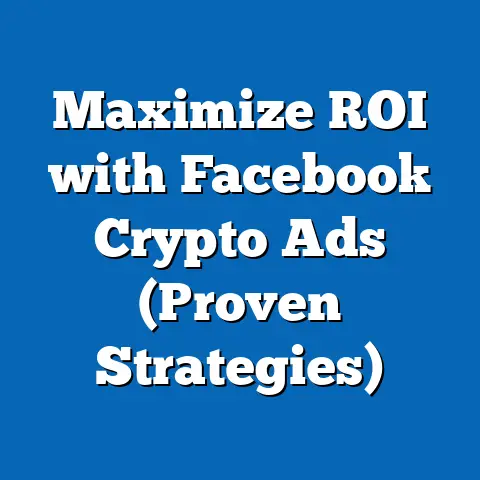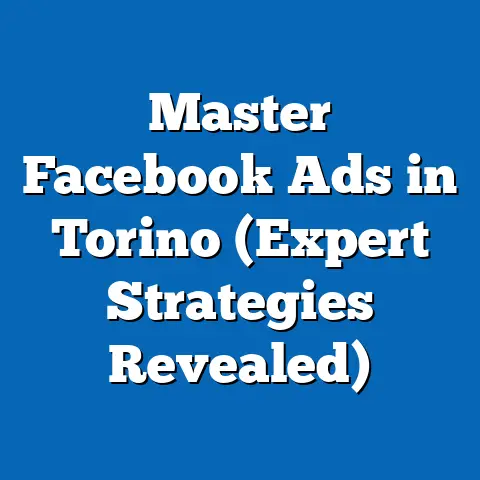Boost Engagement with Facebook Event Ads (Pro Techniques)
In today’s fast-paced, digitally driven world, the human need for connection and community remains a fundamental aspect of social life. This need transcends generations, manifesting as a desire to participate in shared experiences, whether through cultural festivals, professional networking events, or personal celebrations like weddings and birthdays. However, the ways in which individuals seek and foster these connections have evolved dramatically, influenced by technological advancements, economic pressures, and shifting cultural norms.
Historically, community-building was rooted in physical spaces—town squares, religious gatherings, or local clubs. The post-World War II era saw the rise of suburbanization in many Western countries, which, while fostering family-centric lifestyles, often led to a sense of isolation from broader community networks. As urbanization and globalization accelerated in the late 20th and early 21st centuries, the internet emerged as a transformative force, redefining how people connect and engage with events.
The societal implications of this shift are profound. Digital platforms, such as social media, have become central to organizing and promoting events, enabling individuals to reach wider audiences while also navigating challenges like information overload and digital fatigue. This lifestyle need for connection intersects with generational differences, as each cohort approaches technology and community-building with distinct values and behaviors. Understanding these dynamics is critical for leveraging tools like Facebook Event Ads to boost engagement effectively.
Section 1: Generational Perspectives on Events and Community Engagement
1.1 Baby Boomers (Born 1946–1964): Tradition Meets Technology
Baby Boomers, shaped by post-war prosperity and the cultural revolutions of the 1960s and 1970s, often value face-to-face interactions and traditional forms of community engagement. Major historical events like the Civil Rights Movement, the Vietnam War, and the rise of television as a cultural medium influenced their worldview, emphasizing personal relationships and civic involvement. For Boomers, events often signify milestones—retirement parties, family reunions, or charity fundraisers—rooted in established social structures.
While many Boomers have adapted to digital tools, their engagement with platforms like Facebook tends to be more utilitarian. According to a 2021 Pew Research Center study, 70% of Boomers use social media, though they are less likely to engage with ads or event promotions compared to younger generations. When targeting this demographic with Facebook Event Ads, authenticity and relevance are key—ads should emphasize nostalgia, community values, and clear calls-to-action.
1.2 Generation X (Born 1965–1980): The Pragmatic Adopters
Generation X, often described as the “latchkey” generation, grew up during a time of economic uncertainty, with events like the 1980s recession and the end of the Cold War shaping their independent and resourceful nature. They witnessed the dawn of the internet and personal computing, making them early adopters of technology while still valuing in-person connections. For Gen X, events often balance professional networking with personal interests, such as attending industry conferences or local music festivals.
Gen X is active on social media, with 77% using platforms like Facebook, according to Statista data from 2022. They respond well to targeted, value-driven content in event ads, appreciating efficiency and practicality. When crafting Facebook Event Ads for this group, focusing on clear benefits (e.g., skill-building workshops or family-friendly activities) and leveraging their dual comfort with digital and traditional media can enhance engagement.
1.3 Millennials (Born 1981–1996): The Digital Natives
Millennials, shaped by the dot-com boom, 9/11, and the 2008 financial crisis, are often characterized by their tech-savviness and desire for meaningful experiences over material possessions. They came of age during the rise of social media, with platforms like MySpace and early Facebook defining their social interactions. For Millennials, events are opportunities for self-expression and connection, ranging from music festivals to social activism rallies.
A 2020 study by Eventbrite found that 78% of Millennials are more likely to spend money on experiences than products, making them a prime target for event promotions. On Facebook, they engage with visually appealing, story-driven ads that align with their values, such as sustainability or inclusivity. However, their exposure to constant digital content means ads must stand out through personalization and authenticity to capture their attention.
1.4 Generation Z (Born 1997–2012): The Socially Conscious Connectors
Generation Z, the first fully digital-native cohort, has grown up in an era of smartphones, social media saturation, and global challenges like climate change and the COVID-19 pandemic. Their worldview is shaped by instant access to information and a strong emphasis on social justice and individuality. Events for Gen Z often revolve around online communities, virtual gatherings, or hybrid experiences that blend digital and physical spaces.
According to a 2023 report by Morning Consult, 85% of Gen Z uses social media daily, with platforms like Instagram and TikTok often overshadowing Facebook. However, Facebook Events remain relevant for local and community-driven activities. Ads targeting Gen Z should prioritize short, engaging video content, influencer partnerships, and causes they care about, such as environmental or cultural initiatives.
Section 2: The Role of Technology in Event Engagement
2.1 The Evolution of Event Promotion: From Flyers to Facebook
The transition from traditional event promotion (e.g., posters, radio announcements) to digital platforms reflects broader societal shifts toward connectivity and immediacy. Launched in 2004, Facebook revolutionized how events are created and shared, introducing the “Events” feature in 2006. By 2023, over 35 million events are created on Facebook annually, according to internal platform data, showcasing its dominance in this space.
Facebook Event Ads allow organizers to target specific demographics, interests, and locations, leveraging the platform’s vast user base of over 2.9 billion monthly active users (Meta, 2023). This precision targeting addresses the lifestyle need for connection by ensuring relevant audiences are reached. However, the challenge lies in cutting through the noise of competing content and algorithmic changes that impact ad visibility.
2.2 Technological Factors Influencing Engagement Across Generations
Each generation interacts with technology differently, influencing how they engage with event ads. Baby Boomers may struggle with navigating complex ad formats, preferring straightforward designs and desktop access over mobile. Gen X, comfortable with both analog and digital tools, values seamless user experiences that save time.
Millennials and Gen Z, having grown up with technology, expect interactive, mobile-optimized content. A 2022 study by HubSpot found that 60% of Millennials and 72% of Gen Z are more likely to engage with ads featuring video or interactive elements. For event ads, incorporating live polls, countdown timers, or user-generated content can significantly boost engagement among these cohorts.
Section 3: Economic and Cultural Factors Shaping Event Participation
3.1 Economic Realities and Generational Priorities
Economic conditions play a significant role in how generations approach events and respond to promotions. Baby Boomers, often in retirement or nearing it, may prioritize events with low or no cost, such as community gatherings or free webinars. Gen X, balancing career and family expenses, seeks value-for-money experiences, often scrutinizing event costs versus benefits.
Millennials, burdened by student debt and housing challenges (with 40% unable to afford homeownership, per a 2021 Federal Reserve report), gravitate toward affordable, high-impact experiences. Gen Z, entering the workforce amid inflation and economic uncertainty, often relies on social media to find free or low-cost events. Facebook Event Ads must address these economic sensitivities by highlighting ticket pricing, early-bird discounts, or virtual attendance options.
3.2 Cultural Shifts and the Demand for Inclusivity
Cultural norms around events have shifted toward greater inclusivity and diversity, reflecting broader societal changes. Movements like #MeToo and Black Lives Matter have heightened awareness of representation, pushing event organizers to prioritize accessibility and diverse programming. Millennials and Gen Z, in particular, value events that reflect their identities and social causes, with 65% of Gen Z stating they would attend events supporting marginalized communities (Morning Consult, 2023).
Facebook Event Ads can tap into this cultural shift by showcasing diverse imagery, inclusive language, and partnerships with community organizations. Highlighting hybrid or virtual formats also ensures accessibility for those with mobility or financial constraints, broadening the event’s reach.
Section 4: Pro Techniques for Boosting Engagement with Facebook Event Ads
4.1 Crafting Compelling Ad Content
Creating engaging ad content starts with understanding the target audience’s motivations and preferences. Use high-quality visuals—photos or short videos—that capture the event’s essence, whether it’s the energy of a concert or the professionalism of a conference. For Millennials and Gen Z, consider user-generated content or testimonials to build trust and authenticity.
Craft concise, action-oriented copy that highlights the event’s unique value proposition. For instance, “Join 500+ professionals at our annual tech summit—network, learn, and grow!” appeals to Gen X’s pragmatic side. Include clear calls-to-action like “RSVP Now” or “Get Tickets,” ensuring the process is frictionless across devices.
4.2 Leveraging Advanced Targeting Options
Facebook’s advertising platform offers robust targeting tools to reach specific generational cohorts. Use demographic filters (age, location) alongside interest-based targeting to align with each group’s preferences—e.g., targeting Boomers with ads for cultural exhibits or Gen Z with music festival promotions. Lookalike audiences can expand reach by identifying users similar to those who’ve already engaged with the event.
Behavioral targeting, such as focusing on users who frequently attend events or engage with similar pages, can increase ad relevance. A/B testing different ad creatives and targeting parameters helps identify what resonates most with each audience segment, optimizing engagement rates.
4.3 Timing and Frequency for Maximum Impact
Timing is critical in event promotion. Start running ads 4–6 weeks before the event to build anticipation, increasing frequency as the date approaches. For last-minute engagement, use reminders or “limited ticket” messaging to create urgency, especially effective for Millennials and Gen Z, who are prone to FOMO (fear of missing out), with 69% citing it as a motivator for event attendance (Eventbrite, 2020).
Schedule ads during peak engagement times—typically evenings or weekends for younger generations and midday for older cohorts, per Sprout Social’s 2023 insights. Avoid overexposure by capping ad frequency to prevent annoyance, which can lead to lower click-through rates.
4.4 Engaging Through Interactive Features
Boost engagement by incorporating interactive elements into Facebook Event Ads. Features like polls (“What workshop are you most excited for?”) or live Q&A sessions within the event page encourage participation. For virtual or hybrid events, integrate livestream previews or behind-the-scenes content to build excitement.
Encourage attendees to share the event with their networks by offering incentives, such as discounted tickets for referrals. This tactic works well with Gen Z and Millennials, who value peer recommendations—54% trust friends’ suggestions over traditional ads (Nielsen, 2022).
4.5 Measuring Success and Iterating
Track key performance indicators (KPIs) like click-through rates, RSVP numbers, and ticket sales to evaluate ad effectiveness. Use Facebook Insights to analyze which demographics engaged most and adjust future campaigns accordingly. Post-event surveys can provide qualitative feedback on what attendees valued, informing content for future ads.
Iterate based on data—test new visuals, messaging, or targeting strategies with each campaign. This data-driven approach ensures continuous improvement, adapting to changing user behaviors and platform algorithms.
Section 5: Societal and Workplace Implications of Event Engagement
5.1 Strengthening Community Bonds
Events, whether physical or virtual, play a vital role in fostering social cohesion, addressing the lifestyle need for connection. Facebook Event Ads amplify this by connecting diverse groups around shared interests, from local hobby clubs to global webinars. This democratization of access helps bridge generational and cultural divides, though it risks creating echo chambers if targeting is overly narrow.
The societal benefit is clear: stronger communities lead to increased civic engagement and mental well-being. However, organizers must ensure events remain inclusive, avoiding alienation of underrepresented groups through thoughtful ad design and outreach.
5.2 Impact on Workplace Dynamics
In professional contexts, events like conferences and team-building activities enhance networking and skill development. Facebook Event Ads targeting Gen X and Millennials can promote corporate events, fostering workplace collaboration across remote and hybrid teams—a critical need post-COVID-19, with 58% of workers in hybrid roles (Gallup, 2023).
Generational differences in event preferences also influence workplace culture. Younger employees may favor informal, tech-driven meetups, while older generations might value structured, in-person seminars. Tailoring ads to these preferences ensures broader participation, strengthening organizational cohesion.
Section 6: Challenges and Ethical Considerations
6.1 Navigating Privacy Concerns
Facebook’s data collection practices have long raised privacy concerns, with incidents like the 2018 Cambridge Analytica scandal eroding user trust. When using targeted Event Ads, organizers must balance personalization with transparency, ensuring compliance with regulations like GDPR (General Data Protection Regulation) in Europe. Clearly communicating how data is used can mitigate backlash, especially among privacy-conscious Gen Z users.
6.2 Avoiding Over-Saturation and Ad Fatigue
The sheer volume of content on Facebook—over 4 million posts per minute (Statista, 2023)—means ads risk being ignored or perceived as intrusive. Over-targeting or excessive frequency can lead to ad fatigue, particularly among Millennials and Gen Z, who are bombarded with digital promotions. Striking a balance between visibility and restraint is essential for maintaining engagement.
6.3 Addressing Accessibility and Equity
While digital event promotion expands reach, it can exclude those with limited internet access or technological literacy, often impacting older Boomers or low-income communities. Offering alternative promotion channels (e.g., email or community boards) and ensuring events are accessible—both physically and financially—addresses these equity concerns. Ads should also avoid perpetuating stereotypes about generations, focusing instead on shared human needs for connection.
Section 7: Forward-Looking Insights
As technology continues to evolve, so too will the landscape of event promotion and engagement. Emerging trends like the metaverse and AI-driven personalization could redefine how generations interact with events, with virtual reality offering immersive experiences that appeal to tech-savvy Gen Z. However, the core need for community and connection will remain unchanged, necessitating a human-centered approach to ad design.
Facebook Event Ads will likely face increased competition from platforms like TikTok and Instagram, pushing organizers to adopt multi-channel strategies. The rise of hybrid events, blending in-person and online formats, offers opportunities to engage diverse audiences but requires nuanced targeting to address generational preferences.
Uncertainties remain, including potential regulatory changes around data privacy and shifts in social media usage patterns. Event organizers must stay agile, leveraging data analytics and user feedback to adapt to these changes. Ultimately, the success of Facebook Event Ads lies in their ability to foster genuine connections, resonating with the universal desire for shared experiences across all generations.
Conclusion
The lifestyle need for connection and community is a timeless driver of human behavior, shaped by historical, technological, and cultural forces that vary across generations. Facebook Event Ads offer a powerful tool to meet this need, enabling organizers to reach targeted audiences with precision and creativity. By understanding generational differences—from Baby Boomers’ preference for tradition to Gen Z’s demand for digital innovation—marketers can craft compelling campaigns that boost engagement.
Employing pro techniques like advanced targeting, interactive content, and data-driven iteration ensures ads resonate with diverse audiences while addressing economic and cultural realities. The societal implications are significant, as events strengthen community bonds and workplace dynamics, though challenges like privacy concerns and ad fatigue must be navigated carefully.
Looking ahead, the future of event promotion will be shaped by technological advancements and evolving user expectations. While uncertainties persist, a focus on authenticity, inclusivity, and adaptability will remain key to leveraging Facebook Event Ads effectively. In a world increasingly defined by digital interactions, these tools offer a bridge to meaningful, shared experiences that fulfill a fundamental human need.

